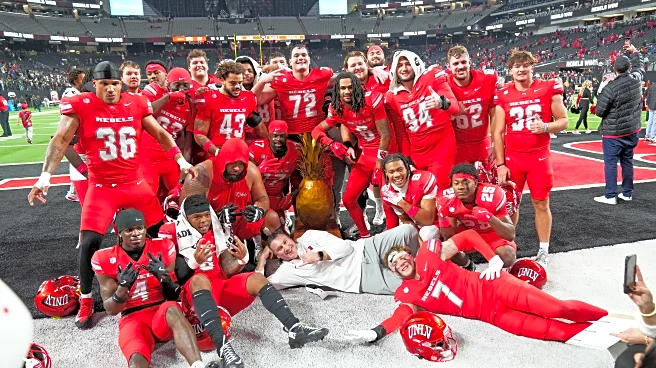What's Happening?
Oracle Hospitality is emphasizing the importance of open standards in artificial intelligence (AI) within the hospitality industry. The company highlights the emergence of standards like Anthropic's Model Context Protocol (MCP) as crucial for creating seamless customer experiences across various platforms such as loyalty programs, mobile apps, and e-commerce. Open standards facilitate the flow of intelligence across these touchpoints, preventing proprietary solutions from becoming isolated and limiting their impact. While proprietary AI tools offer competitive advantages by optimizing pricing and personalizing offers, Oracle suggests that these systems should be built on interoperable foundations to ensure scalability and resilience.
Why It's Important?
The push for open standards in AI is significant for the hospitality industry as it seeks to enhance customer experiences and operational efficiency. By adopting open standards, businesses can ensure that their AI systems are not siloed, allowing for greater collaboration and innovation across the industry. This approach can lead to improved service delivery and customer satisfaction, as intelligence can be shared and utilized more effectively. Companies that balance proprietary AI with open standards may gain a competitive edge by leveraging the best of both worlds, driving industry-wide advancements and fostering a more connected ecosystem.
What's Next?
The hospitality industry may see increased collaboration among companies as they adopt open standards like MCP. This could lead to the development of more integrated and efficient AI systems, enhancing customer experiences and operational capabilities. Businesses might focus on creating interoperable AI solutions that can contribute to and benefit from the broader ecosystem, ensuring long-term sustainability and growth. Stakeholders in the industry may need to evaluate their current AI strategies and consider how open standards can be incorporated to maximize value and agility.
Beyond the Headlines
The move towards open standards in AI raises ethical and cultural considerations, particularly regarding data sharing and privacy. As companies collaborate more closely, they must navigate the complexities of data governance and ensure that customer information is protected. Additionally, the shift may influence long-term industry trends, encouraging a culture of openness and innovation that could redefine competitive dynamics and business models in hospitality.










